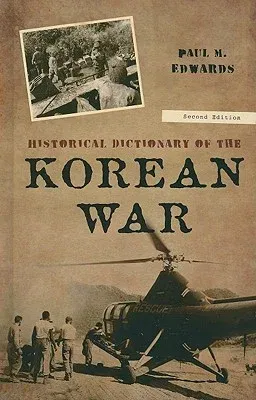Paul M Edwards
(Author)Historical Dictionary of the Korean War, Second EditionHardcover, 10 June 2010

Qty
1
Turbo
Ships in 2 - 3 days
In Stock
Free Delivery
Cash on Delivery
15 Days
Free Returns
Secure Checkout

Part of Series
Historical Dictionaries of War, Revolution, and Civil Unrest
Print Length
510 pages
Language
English
Publisher
Scarecrow Press
Date Published
10 Jun 2010
ISBN-10
0810867737
ISBN-13
9780810867734
Description
Product Details
Author:
Book Format:
Hardcover
Country of Origin:
US
Date Published:
10 June 2010
Dimensions:
21.84 x
14.48 x
3.56 cm
ISBN-10:
0810867737
ISBN-13:
9780810867734
Language:
English
Location:
Lanham, MD
Pages:
510
Publisher:
Weight:
793.79 gm